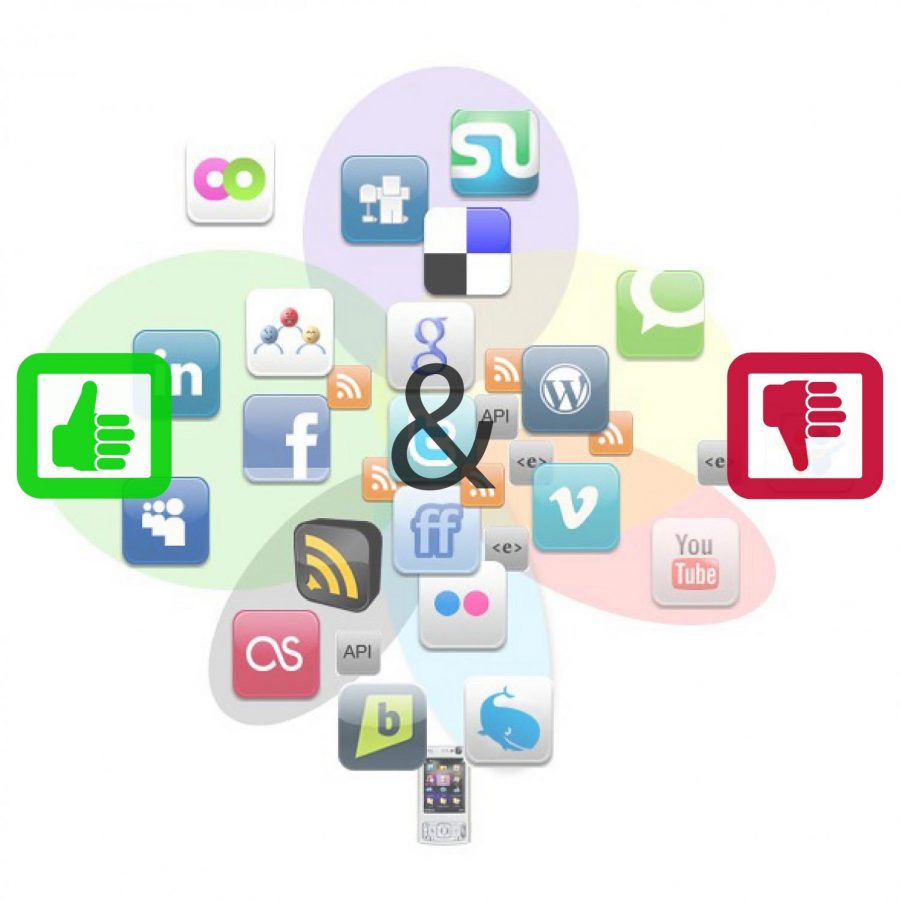OPINION: Social media negatively affects communication
Anger, miscommunication, polarization are all side effects of social media usage
Social media degrades relationships and hurts people, especially during election season.
September 8, 2020
Social media can be very useful, especially during a pandemic, when seeing friends and family in person is not a viable option. Social media, however, does not come without negative aspects.
When people communicate with others solely through social media, it does more harm than good. When social media is overused, it can become addictive and often brings out the worst in people.
“In social media in general, it has been tied to negative emotions. Sometimes we feel bad about ourselves,” said Jessica Willoughby, WSU assistant professor in the Edward R. Murrow College of Communication.
For a platform that is supposed to bring people together, it often sets boundaries instead. Jealousy arises constantly when using social media, whether the jealousy is over real or perceived appearances, skills or vacations.
Social media usage needs to be self-monitored — spending hours of time staring blankly into a phone screen is very easy, but not to our benefit.
“We are smart human beings, and we know that if we left our phones somewhere … if we’re not checking our Twitter accounts 200 times a day, and we are creating a sense of anxiety if we aren’t able to do that, we know we have a problem,” said Gabriella Bedoyan, WSU Murrow College instructor.
Checking our phones and our social media accounts has become a mindless habit for many of us, creating a routine of checking Instagram even if we just checked the app minutes before.
Willoughby also said the anonymity of social media can be problematic.
“Especially if you are anonymous in what you are saying, you might be less restrained than you would if it was something you put your name or face behind,” Willoughby said.
This is topically relevant right now during election season. Facebook, Twitter and Instagram are riddled with hateful and rude posts about political views. Social media can be polarizing, but platforms get truly nasty during election season when comment sections blow up with arguments between two complete strangers.
“I think that we have a tendency to proceed on social media without a filter,” Bedoyan said. “I think people are meaner on social media, and less inhibited.”
Nobody cares about the potential consequences their words have on other people when typing behind a screen. The face-to-face element of communicating is totally lost. Not seeing somebody’s facial feedback can empower people to be bolder and ruder while on social media.
During the pandemic, while in-person contact with others is not recommended, people have plenty of time to stir up emotions, text, tweet or post something they would not say in person. With the amount of divisiveness in America, especially with the upcoming election, these negative interactions run rampant across the internet.
Social media can be a useful tool when used as intended and in moderation. However, the value is lost when people lose aspects of their social life in favor of sitting behind their computer. The divide social media can create is greater than the connectivity it provides.

















